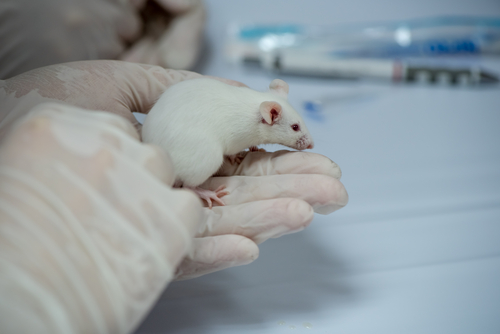The protein FoxO3, which regulates the levels of other proteins in cells, was found to play a key role in the development of pulmonary fibrosis, researchers reported.
Results of the study, “FoxO3 an important player in fibrogenesis and therapeutic target for idiopathic pulmonary fibrosis,” showed that FoxO3 can control fibroblast proliferation and differentiation, preventing a pro-fibrotic status. The study was published in the journal EMBO Molecular Medicine.
Fibroblasts are the cells responsible for the production of collagen that is present in the air sacs’ structure (alveoli) in the lungs. In idiopathic pulmonary fibrosis (IPF), fibroblasts suffer a series of transformations that make them lose control and produce too much collagen, which will then accumulate and form scar tissue. But scientists are still unclear about what triggers this transformation.
To better understand the molecular changes behind fibroblast transformation, a research team at the Max Planck Institute for Heart and Lung Research in Bad Nauheim, Germany, compared primary human lung fibroblasts collected from healthy donors with those collected from IPF patients.
They found that IPF cells had lower levels of the transcription factor FoxO3 than cells from healthy people. In addition, the activity of this factor in IPF cells was significantly lower. These findings suggested the protein could take part in the molecular mechanism of fibrosis.
To test their hypothesis, the team exposed human lung fibroblasts from the healthy volunteers to several biological factors known to promote fibrosis, such as TGF‐β1, and they found that the cells would change their molecular pattern toward blocking FoxO3 activity.
The genetic inhibition of FoxO3 in healthy fibroblasts also led to a cellular transformation similar to that reported in IPF fibroblasts.
Based on these results, the team decided to evaluate the protein in mouse models of pulmonary fibrosis. Once more, they found the FoxO3 protein was deficient and had reduced activity in the fibroblasts of mice.
Next, they tested mice genetically manipulated to not have FoxO3, and found that these animals developed pulmonary fibrosis faster than mice with the protein.
“These mice developed idiopathic pulmonary fibrosis much more quickly than control animals — so quickly, in fact, that we were forced to shorten the experiment,” Soni Pullamsetti, the senior researcher of the study, said in a news release.
To verify if the factor could be a therapeutic target for IPF, the team treated mice with UCN-01, a staurosporine analogue that prevents the inactivation of FoxO3 and has already been tested in clinical trials for the treatment of several cancers.
This approach was found to be successful in IPF mice, as the animals experienced fewer symptoms and improved lung function.
“Our study shows that reduced FoxO3 activity plays an important role in the development of idiopathic pulmonary fibrosis, and that FoxO3 is a good place to start in developing a treatment for the disease,” said Werner Seeger, director of the Max Planck Institute for Heart and Lung Research and co-author of the study.
The team is planning to further evaluate the role of FoxO3 in IPF, in the hope of gathering valuable preclinical data to support the start of clinical trials in patients.

